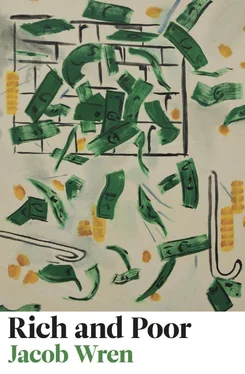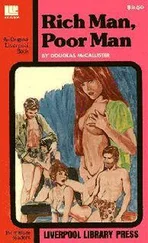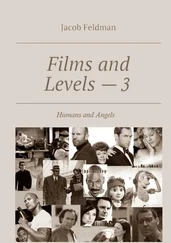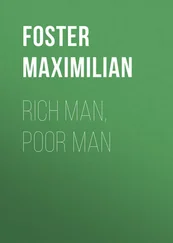Today, while washing dishes, some music came over the radio. There wasn’t a radio in the kitchen, so I’m not sure exactly where it came from — from a car parked on the street just outside the door or another restaurant kitchen across the alley — but I knew that music, had played it many times. Strangely, I could not remember which composer, nor the composition, and felt the melody press against me like a skin I had long ago shed. There was a time when I could have told everything about this music, and now all I knew was that it was something from my past. I listened, always knowing what note would come next, and felt pride at how much I had now forgotten. I had severed myself from the finer things, from sentimental resonances and connections that might later hold me back, might prevent me from doing what needed to be done. And yet I still enjoyed hearing this music, in a rather workmanlike performance by a pianist who I believe had never suffered a day in his life. It was a ghost from the past and I didn’t mind. It said to me that the world still exists.
I must have stopped to listen because moments later my boss was yelling at me, telling me to get back to work, these dishes won’t wash themselves, etc. I try to keep my behaviour in the kitchen as normal and average as possible, so I chided myself for this moment of drifting away. For the next four hours I washed dishes with absolute calm efficiency. These jobs are only to survive and stay out of sight, a hiding place until the time comes to act. Sometimes I pretend that I don’t miss my former life, but this is also a mistake. Of course I miss it. I would be stupid not to. It was so much gentler, so much more pleasant, than the life I live today. It is only a matter of focusing on what is most important, on the urgent matters at hand. Each man has to decide: a pleasant, empty life, or a difficult one but with meaning.
When I got home I was exhausted, as is always the case after a dishwashing shift. I lay in bed but couldn’t sleep, so instead fantasized about the future, what it would be like if we managed to strike down ten billionaires, in seemingly unconnected killings, spread out over the course of several years. How, once the pattern became clear, journalists would speculate, what they might say about such an unprecedented phenomenon. Some would condemn it; perhaps the press would feel forced to condemn it unanimously, but so many others, people from all walks of life, would feel an excitement difficult to describe, a sudden newfound sense of possibility, the energy of modern violence focused on a cause, towards justice. A warning shot fired against those who wish to debase our world. Of course, all of this is only fantasy. Who knows what will actually happen once the piano wire has done its work. But I need these fantasies to stay focused, to maintain hope that my plan, however difficult to achieve, is for the best, that some new energy will be released through my actions. I need to imagine what is possible.
1.
Allow me to describe a board meeting, not a typical one, but a telling instance nonetheless. Quite early in the meeting, a chief marketing consultant, someone new who I did not yet know very well, launched into his clearly prepared lines, that sales in some areas were down by between two and four per cent, but he also had the solution. He spoke for a while, about packaging-marketing synergy, new techniques for making products leap off the shelf, before I interrupted. He wasn’t doing badly, managing to more or less hold the interest of all present, but I had no patience for him; the scale of his reflections was too narrow. “There are two ways of playing this,” I carefully explained to the room. “We can try to regain some traction in already played-out, oversaturated areas, or we can search out new energies, blast forward into markets that, at the moment, perhaps do not even exist. If we think of profits as a map, where on the map is no one else going? This is where the real gold is to be found. None of this two or three per cent bullshit.”
The room always falls so silent after one of these jags of mine. Everyone feels they should deliver but no one knows what or how. For me, that’s always been the sweet spot, this not knowing, at the foot of a mountain, the only thing ahead an incredibly steep climb. You can barely see the mountain from where you’re standing and have little idea how long or arduous the journey might be. But you know the journey will test you, that something will happen, something good or bad, anything. However, a mountain is the wrong metaphor, because we all know what a mountain is. In these moments we are searching for something we don’t yet know, and as we move towards it, we are always unsure whether or not it will actually generate profit. It is a gamble and the more you gamble the more you win.
Slowly the board meeting changes course and brainstorming begins. In the markets where we are currently losing traction we have so many products and services available, a million possible starting points any one of which could suddenly spark some new direction. Traditionally, a board meeting is not the proper place for this speculation (we have specialists in all of these areas) but I like the board to feel involved, to feel that their ideas matter even when they don’t. A board that feels involved is a board that will rarely turn on you, and I prefer all my operations to be mutiny proof.
There is one other moment from this particular meeting I would like to draw attention too. Agriculture remains one of the four pillars of our business model, and one that is unlikely to falter since people will always need food. We have patented just slightly over twelve thousand different seed and crop variations over the past twenty-five years and therefore have a substantial stake within the global playing field. Many of our developmental products in this area remain obscure, things that no one wants, yet we believe, sometimes with little or no evidence, that we may be able to generate a certain degree of demand for them in the future. One such file is 122TOC (let’s see if the reader can guess what agricultural product lies behind this abbreviated patent number, and if you look it up on the internet you’re cheating). 122TOC had become something of a running joke among the board, the result of a lengthy, research-intensive development process the end result of which seemingly has no practical application whatsoever. It is a tough, difficult to grow, inedible, awkwardly shaped plant of purplish hue. (Some might say much like my prose in this book.) At first we thought it might be used to make rope or cloth, but the price point ratios were exorbitant.
Often, at a meeting, when something doesn’t look good, someone might ask whether we’re embarking on another road to 122TOC. But at this particular board meeting the joke took another, perhaps more useful, twist. It was suggested we could set up a dummy corporation, an organization that for all intents and purposes appears to be one of our most serious upstart competitors. This ‘rival’ corporation would work to sell 122TOC seeds to farmers who had consistently rejected our products over the years, perhaps branding them as normal strains of organic wheat or rice. When the crops proved monstrous we would sweep in with the solution, offering, free of charge, to remove all strains of 122TOC from their fields, and in the process replacing them with our own genetically modified examples of rice and wheat. Probably nothing will come of the idea. In a way it is too silly and risky to be worth the considerable effort. But it is an interesting proposition, since it does offer a solution for opening up one of the toughest markets to crack: those who have explicitly refused to make use of our agricultural services, whether for political reasons or simply out of an innate stubbornness (since farmers are nothing if not stubborn, an almost necessary trait in their vocation).
Читать дальше












